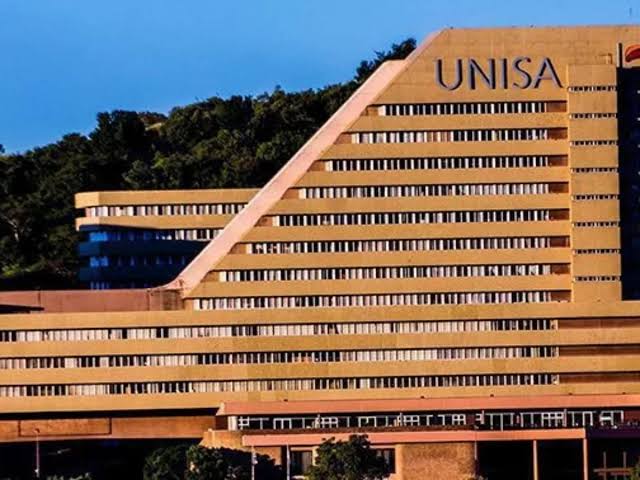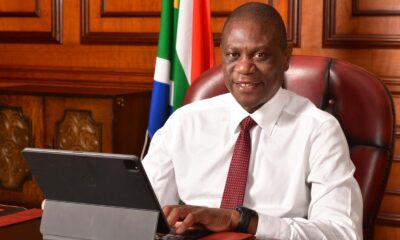News
UNISA Accused of Snubbing Labour Ruling After Ex-CFO Wins Nearly R1 Million

Whistleblower or casualty? Former finance chief Phumlani Zwane says his dismissal followed warnings about financial irregularities
It’s a story that’s becoming all too familiar in South Africa’s public institutions, a senior executive raises red flags about financial misconduct and is allegedly shown the door not long after.
Now, former University of South Africa (UNISA) Vice Principal for Finance and Business, Phumlani Zwane, is crying foul, accusing the university of stonewalling a Commission for Conciliation, Mediation and Arbitration (CCMA) ruling in his favour, and effectively dodging a court-backed payout.
From whistleblower to sidelined: Zwane’s version of events
Zwane says his troubles began back in 2019, when he raised concerns about financial irregularities at UNISA under the leadership of former Vice-Chancellor Professor Mandla Makhanya. What followed, he claims, was a pattern of retaliation, beginning with a suspension and ending with his dismissal in 2021.
“I was suspended after alerting the university to serious financial issues. It was clear from the start this was an attempt to silence me,” Zwane told reporters.
Fast forward to April 14, 2025, when the CCMA ruled in his favour, awarding him R985,000 for what it deemed an unfair dismissal. The ruling followed an earlier resolution on his suspension dispute, which saw UNISA settle R300,000.
But while the suspension settlement was paid out, Zwane says the larger dismissal award has remained unpaid, prompting him to issue a writ of execution, essentially a court order to seize assets from UNISA to cover the debt.
Inside UNISA’s response: A review and a rejection
UNISA, however, isn’t taking Zwane’s side. In a public statement, the university disputed his claims, stating that only two disputes were referred to the CCMA — not three as Zwane alleged — and that the dismissal award is currently under legal review, which, by law, suspends the obligation to pay.
“There is no delay. The review process is underway, and the university maintains there was no unfairness in the dismissal,” the institution said.
In their legal view, “no money is owed at this stage.”
A deeper problem at the institution?
Zwane’s case is not playing out in isolation. Reports have emerged of multiple senior officials being suspended or sidelined for speaking out against irregular financial transactions at the institution.
“UNISA has had three CFOs in five years. Two were ousted after raising concerns. The third one jumped ship before he could be forced to compromise financial controls,” Zwane alleged in a letter addressed to current Vice-Chancellor DD Mosia and the university council.
This mounting turmoil has drawn the attention of Minister of Higher Education, Dr Nobuhle Nkabane, who confirmed she is looking into UNISA’s ongoing leadership instability and governance issues.
Public trust at stake as whistleblowing comes at a cost
Social media has responded with growing frustration. Under hashtags like #UNISAFinanceScandal and #JusticeForZwane, South Africans are asking why institutions tasked with educating the next generation are failing to uphold basic principles of transparency, accountability, and justice.
“UNISA should be a pillar of ethical leadership — not a revolving door for finance chiefs who get punished for doing their jobs,” one user posted on X (formerly Twitter).
For students and staff alike, this isn’t just about one man’s payout — it’s a symptom of deeper dysfunction. In a climate where whistleblowers are often left isolated and vulnerable, Zwane’s case echoes the broader national conversation about the high personal cost of integrity in public service.
So what happens next?
With the legal review in motion, Zwane may not see his CCMA award materialise anytime soon. But the bigger questions now hover over UNISA’s governance culture, the role of the university council, and the state of protections for those who report wrongdoing.
As Zwane presses forward with his third complaint at the CCMA — this one on unfair discrimination — his case could become a litmus test for how South Africa’s institutions treat whistleblowers and handle internal dissent.
And as the nation watches, it’s not just UNISA’s balance sheets under scrutiny. It’s its conscience.
{Source: IOL}
Follow Joburg ETC on Facebook, Twitter , TikTok and Instagram
For more News in Johannesburg, visit joburgetc.com



























